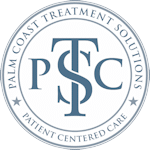AUD is a severe and chronic disorder that continues to impact millions of people and their loved ones globally. At Palm Coast Treatment Solutions, our mission is to address the needs of these individuals and ensure that they receive the compassionate, effective, and personalized care they need to finally overcome their alcohol problems and achieve sustained sobriety.
Understanding Alcohol Use Disorder
Alcohol Use Disorder is a disease where an individual is unable to stop drinking alcohol even though there will be harmful effects.
Symptoms of AUD include:
- Strong cravings for alcohol
- Loss of control over drinking
- Withdrawal symptoms when not drinking
- Prolonged alcohol use to the extent that it becomes detrimental to the general well-being, interpersonal interactions, and performance of duties.
- Failure insignificant responsibilities in the workplace, school, or at home
- Drinking especially in risky conditions such as driving.
- Building up a tolerance that requires more alcohol to produce its impact.
Causes Of Alcohol Use Disorder
- Genetic predisposition: Genetic predisposition such as family history of alcohol use disorder can predispose a person to have the condition.
- Environmental influences: Approximately alcohol use by peers, stress and accessibility can influence use.
- Psychological factors: Other secondary risk factors include mental illness, post-traumatic stress disorder, and other stress-related disorders, which make people use alcohol.
Consequences of Alcohol Use Disorder
- Health complications: Kidney disease, liver disease, cardiovascular disease, pancreatitis, neurological disorders, and anemia.
- Mental health issues: Potential to develop a higher level of anxiety, depression, and other related mental illnesses.
- Social consequences: Interpersonal conflict, negative social interactions, conflicts at work and school.
- Legal problems: Activities involving the use of alcohol such as drunk driving, violence, and other offenses involving the use of alcohol.
When to Consult a Professional
Being able to know when one needs professional help is very important in the healing process. It is time to seek help if you or a loved one:
- Has had crashing diets that involve drinking alcohol and inability to stop or control the same.
- Has tried to reduce or stop drinking but was unable to do so
- Experiences unpleasant outcomes and adverse effects in various aspects of their lives because of alcohol consumption
- Has to consume alcohol regularly and exhibits symptoms of withdrawal such as tremors, excessive sweating, and anxiety when one does not drink.
- This leads to the development of a tolerance that requires the use of more alcohol to get high.
Our Approach
Palm Coast Treatment Solutions respects the patients and their individual needs which is why we have an individual approach to the treatment of AUD. The treatments we offer are quite clinically founded and depend on the individual and are holistic managing not only the physical aspect of the addiction but also the emotions and psychology involved. We believe in ensuring that the patient’s needs are met holistically and that our clients have access to whatever is required to help them find sobriety and stay sober.
Treatment Programs
We offer several options to provide treatments for every individual. Our programs include:
- Inpatient/Residential Treatment: This is an intense program that is suitable for people who need a certain degree of structure or stable environment to enable them to work on their sobriety. Clients stay three to six days and get medical and therapeutic services throughout the day.
- Outpatient Treatment: Our outpatient program works well for those who have already undergone inpatient treatment or those clients who have relatively mild cases of AUD. Patients participate in therapy sessions and support group meetings, but they carry out their regular work and family obligations.
- Intensive Outpatient Programs (IOP): IOP is more comprehensive than regular outpatient treatment and is recommended for those who require further support. Patients can attend even more sessions of therapy and practice in groups but can continue to reside in their homes.
Partial Hospitalization Programs (PHP): PHP is designed to mimic inpatient treatment but with the flexibility to have clients go home at the end of the day. A partial hospitalization program is ideal for clients who require close observation but not at a level that will warrant their admission in a full-time care facility.
Therapeutic Approaches
The strategies used in therapy aim to touch on all possible facets of the disorder and recovery. These include:

- Individual Therapy: Individual therapy helps clients address the root cause of substance dependence, establish ways of adapting to everyday life, and create achievable objectives for rehabilitation. The choice of the therapy approach is rendered individual for each client taking into account preferences and evidence-based practices.
- Group Therapy: It helps the clients to interact with fellow people who may have similar issues as them or even worse. It is often said that people suffering from addiction need the support of their peers, and these group sessions are of great importance in that regard.
- Family Therapy: Substance abuse is not only a personal problem but has implications for close relatives. Family therapy meetings are useful in the repair and strengthening of relationships among family members and as an informative process regarding addiction issues and the process of recovery. Ensuring that the family members participate in treatment offers a point of support to the client and better results.
- Cognitive Behavioral Therapy (CBT): Cognitive behavioral therapy is a common type of therapy that focuses on the rewiring of deleterious thinking and actions related to substance dependence. In CBT, one can understand how to change negative thought patterns and come up with healthier ways of responding to situations.
- Dialectical Behavior Therapy (DBT): DBT is most helpful when used for clients who present with a dual diagnosis of substance use and mental illness. It integrates elements of cognitive behavioral therapy with mindfulness approaches that aim at transforming emotions, self-harmful behaviors, and styles of interaction with others.
Medication-Assisted Treatment (MAT)
Medication-assisted treatment involves the use of prescribed FDA medications alongside behavioral therapies that help in dealing with cravings, withdrawal symptoms, and relapse. The three drugs most commonly utilized in MAT for AUD include disulfiram, naltrexone, and acamprosate. These medications assist in decreasing the altered state of mind, prevent the positive facets of alcohol consumption, and minimize the craving. Research has revealed that MAT increases clients’ adherence to treatment and enhances long-term recovery when administered alongside other therapeutic methods.
Support Services
There is not a one-size-fits-all approach to AUD recovery and it does not just end once the individual is sober. At Palm Coast Treatment Solutions, our clients have access to essential support services that ensure they are stable in their recovery processes.

- Case Management and Aftercare Planning: The case managers provide organized aftercare support by identifying if the client requires continued outpatient therapy, attending support group sessions, or other aftercare facilities that the client requires to maintain the recovery. Aftercare is one of the most crucial parts of the process because it is here that clients need to be assisted with their transition to normal life from a rehab center.
- Relapse Prevention Strategies: We provide our clients with essential techniques and methods for identifying causes developing strong coping mechanisms and avoiding circumstances that might result in relapse. Relapse prevention is a key aspect of the program at our treatment center and is included in all aspects of the process.
At Palm Coast Treatment Solutions, we offer personalized support for anyone suffering from Alcohol Use Disorder. To find out more about how we can help you or to enroll in one of our programs, call us now at (386) 284-4151.
 info@shc.health
info@shc.health 

